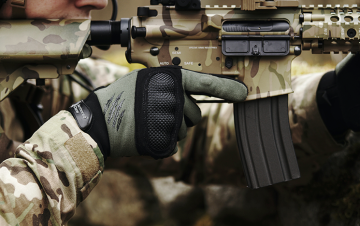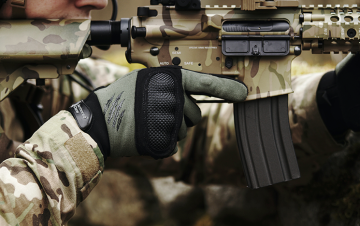What is insubordination?
Insubordination, under Article 402 of the Criminal Code of Ukraine (CCU), is a serious violation of military discipline when a serviceman deliberately refuses to obey a lawful order from a commander or another superior officer. This can be either an open refusal to carry out an order or actions indicating an unwillingness to perform duties. For example, if a commander issues a combat order and a soldier ignores it or performs it incompletely, this may be classified as insubordination under the CCU. However, not every refusal is a crime. If the order contradicts the law or poses a threat to life, the serviceman has the right to submit a report of refusal, but this must be properly documented to avoid accusations of insubordination.
Liability under Article 402 of the CCU
Article 402 on insubordination provides for severe penalties, which depend on the circumstances of the crime. The legislation clearly defines the consequences:
Types of penalties under Part 1:
- Restriction of liberty for up to 2 years.
- Detention in a disciplinary battalion for up to 2 years.
- Imprisonment for up to 3 years.
Types of penalties under Part 2:
- Imprisonment for 3 to 7 years (for committing the act by a group of persons or with grave consequences).
Types of penalties under Part 3:
- Imprisonment for 5 to 10 years (under martial law or in combat).
In addition to the main penalties, additional types of punishment may be applied, such as deprivation of military rank, which significantly affects the serviceman's career. For example, in practice, there are cases where a serviceman lost his rank due to insubordination, complicating his further service.
What is failure to obey a commander's order?
Failure to obey a commander's order is one form of violation of military discipline when a serviceman deliberately does not carry out an order but does not necessarily openly refuse to do so. This can manifest in delaying execution, partial execution, or execution with errors indicating an unwillingness to comply with the requirements. For example, if a soldier is ordered to move equipment but deliberately delays the process, this may be considered failure to obey an order. Such actions may also fall under Article 402 of the CCU if intent is proven.
Difference between insubordination and failure to obey an order
Despite the similarities, there are significant differences between insubordination and failure to obey an order:
- Insubordination is an open refusal or clear unwillingness to carry out an order, for example, when a soldier directly states that he will not carry out a combat order.
- Failure to obey an order is a more covert form, where actions may formally appear as an attempt to execute but in reality, the order is not properly carried out.
For example, in judicial practice, there was a case where a serviceman received an order to take a position but left it due to a lack of equipment. This was classified as failure to obey, not open insubordination, which affected the severity of the punishment.
Lawyer in cases of insubordination (Article 402)
In the event of being charged under Article 402 of the CCU, it is important to seek a military lawyer who specializes in insubordination cases. A lawyer can help:
- Analyze the circumstances of the case, checking whether the order had signs of criminality.
- Gather evidence, such as witness testimonies or conclusions from the Military Medical Commission (MMC) regarding the state of health or fitness for military service.
- Build a defense strategy, taking into account the client's moral and psychological state at the time of the actions.
- Represent the client's interests during the pre-trial investigation, official investigation, and trial.
A common mistake is to independently admit guilt without consulting a lawyer, which can complicate the defense. For example, in practice, there was a case where a serviceman admitted guilt, not knowing that the order was illegal, leading to a harsher punishment.
Defense strategy for a serviceman
An effective defense strategy under Article 402 of the CCU may include several approaches:

Proving that the order was illegal or contradicted another lawful order, indicating signs of the order's criminality.

Referring to the moral and psychological state or health condition that could have influenced the serviceman's actions.

Using witness testimonies or expert conclusions, such as from the MMC, to confirm the circumstances.

Referring to the peculiarities of martial law, which may affect the assessment of actions.

Attempting to reach a settlement or exemption from punishment with probation, if possible.
For example, in practice, a lawyer proved that the order was issued in violation of procedures, which allowed for a mitigation of the client's punishment.
Examples from practice
One example is a situation where a serviceman refused to carry out an order due to a danger to life, considering it suicidal. The lawyer proved that the order contradicted safety, and the case was closed. In another case, a soldier submitted a report of refusal due to the illegality of the order, but without legal support, this was used against him.
Common mistakes
Among the common mistakes is untimely seeking a lawyer, which complicates the defense. Another mistake is giving testimony without consulting a lawyer, which can be used in court against the accused. Also, servicemen often do not preserve evidence, such as medical reports or testimonies, which could help in the defense.
How to solve clients' problems with the help of lawyers
Military lawyers can:
- Analyze the legality of the order and the circumstances of the case.
- Gather evidence, including witness testimonies and MMC conclusions.
- Develop a defense strategy, taking into account the moral and psychological state and martial law.
- Represent the client's interests at all stages, from official investigation to trial.
- Seek a settlement or exemption from punishment with probation.
Legal assistance significantly increases the chances of a successful defense and avoiding unfair punishment.
Question
What will happen if the problem is not solved?
Answer
If the problem is not solved and a lawyer is not consulted, the serviceman may be convicted under Article 402 of the CCU, which entails serious consequences such as imprisonment, loss of military rank, and reputational damage. Without professional legal assistance, it is difficult to effectively protect one's rights, especially under martial law, when the trial may be expedited.
Question
Is it possible to avoid liability for insubordination?
Answer
It is possible to avoid liability if it is proven that the order was illegal or the client's actions were justified by circumstances such as a threat to life or health. A military lawyer can gather the necessary evidence, including medical reports or testimonies, and build a convincing defense to achieve a mitigation of punishment or closure of the case.
Conclusion:Article 402 of the Criminal Code of Ukraine establishes serious liability for insubordination and failure to obey an order, but with the right approach and the help of a qualified lawyer, it is possible to protect one's rights. Timely seeking a lawyer allows avoiding common mistakes, such as independently admitting guilt, and ensures effective defense at all stages - from pre-trial investigation to trial. If you are facing a similar situation, contact the legal marketplace CONSULTANT, where you will find specialists who will help you navigate complex legal processes and protect your interests.

































